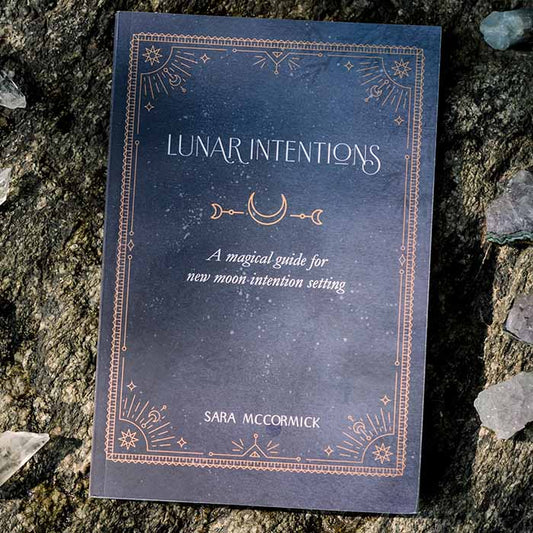In this episode, I chat about the term 'lightworker' and how it can be misleading. Lately, the term seems to have become a pop culture fad, often associated with being eternally optimistic and positive. But, isn't it essential to remember, to truly illuminate, one has to delve into the shadows as well? Carl Jung once wisely said, "how can I be substantial if I do not cast a shadow?" He's right - one cannot exist without the other.
Our journey of self-growth isn't just about bringing light to our lives; it's also about shadow work. It's not about banishing the darkness, but rediscovering the treasures we've hidden away. After all, can we truly shine without venturing into the shadows first?
If you identify as a lightworker, consider this a friendly nudge to embrace the full spectrum of your being. Let's question, grow, and illuminate together!
You can find the transcript of this episode below.
And a lot of that is because from my perspective, from where I'm sitting, from the conversations I'm having, people forget that to be a lightworker, you also have to be a shadow worker. You cannot be one without the other. Carl Young, who you may have heard of, he's a pretty famous psychologist, created the term shadow work. Shadow work is actually a psychology term. And one of my favorite quotes from Carl is, how can I be substantial if I do not cast a shadow? I must have a dark side also if I am to be whole. And that is the essence of what I feel like people forget, especially when they want to call themselves a lightworker, that they forget about their shadow, that they forget that they want to ignore, that they have a shadow, they want to keep their shadow in the shadows. And there is huge misunderstanding from my perspective around shadow work and what shadow is, and that there's this equating shadow with dark, with bad, with something you need to get rid of that something unwanted.
And that is completely the opposite of what shadow work is, of what your shadow is. Just like the reason I have issue with the term lightworker is because whether intentionally or not, it focuses on what we as humans see as one side of the coin, one half of the whole, it's the light side. We tend to make things very black and white. There needs to be, we kind of see things as there's a light side and there's a dark side. And so being a lightworker for me is uncomfortable. And it may not be uncomfortable for you, it may not evoke the same things for you, and that's totally fine, I just need to say that. But for me, it evokes this sense of ignoring half of ourselves. And there are plenty of lightworkers who are very open and honest about being what being a lightworker is for them, and that it includes shadow work, and I am here for it.
Thank you. You are doing the work. But there's also plenty of lightworkers who aren't open about shadow work, who aren't incorporating shadow work into their practice. And I think they should be, because again, you cannot truly be a lightworker in my very humble opinion, without also being a shadow worker. They're the same thing. And for many people, the idea of shadow work can seem daunting. You might even notice as I'm seeing shadow work, that you have fears about what shadow work is or ideas. And I think it's important to remember with shadow work, there's this, for some people, there's an idea of shadow work is uncovering some kind of demon or monster that's lurking inside of them, and that is no. Or the other idea I hear a lot is that shadow work is a tool to heal broken parts of yourself. And again, no, there is no part of you that's broken. There's no part of you that's dark or bad or a demon or a monster. Again, I really don't like the fact that we as humans have made things into light and dark, but that's what we've done. So we've got to have to go with it. But to me, the way I like to reframe shadow work is that shadow work is the act of healing your inner child. Shadow work is the conscious journey inside of yourself. Find the parts of that hid in childhood in order for you to feel safe.
Shadow work isn't about uncovering the darkest parts of yourself so you can unquote get rid of them. Shadow work is about rediscovering the gems you hid away in order to protect them. It's about going into the shadows of ourselves to bring light to the parts of us that it wasn't safe to show. We hid those precious gems away because they knew, we knew that they would get broken, they would be tarnished, but now we are older and hopefully we're in a place where it's safe to bring those gyms out into the light so that they can shine. That is what shadow work is, and that is why you cannot be a light worker without being a shadow worker, because shadow work is the process of going into the dark to illuminate. So you have to bring the light into the dark. If you call yourself a lightworker and you have this light and you are not doing the work to go into the dark, why are you holding the light?
Why are you holding the light? If you aren't using it to heal and to heal, you must go into the dark. Okay, I'll get off my soapbox now, but I just wanted to talk about that today. And so on a more psychological level, shadow work is a term used to describe the process of acknowledging, understanding and integrating our unconscious parts. So these unconscious parts can be things that we learned to hide in childhood through our family or our experiences. It's the fears and emotions that we learn to hide away as children. It's if you were made fun of as a child for the way you laughed, then you might have tried to change your life to fit in, or you tried to not laugh who might have through this experience had limiting beliefs created around laughter, around fun, around you, and feeling like something's wrong with you because you're being made fun of for something very innate, something you don't have very control over your laugh and that these beliefs could become part of your shadow self.
So that's kind of how your shadow is created. It's through experiences, it's through trauma. Unfortunately, it is through things you saw your parents do or heard your parents say, or your caregivers, whoever was kind of the adult in your childhood. That is how our shadow is created. And shadow work is uncovering these things because even though they are in our subconscious, they very much play a role. They play a part in our everyday conscious life, and we make decisions from our shadow self quite often because our shadow self just desperately wants to keep us safe, and it's operating from our first definition of what safe is. And so using that earlier example, if you were made fun of as a child for your laugh, your laugh to your child's self was unsafe. It may have felt unsafe to laugh, and that can branch out to situations where you thought you might've laughed, you could have felt unsafe.
So situations that could have for others felt very fun or joyful or lighthearted may have evoked a sense of fear in you, a sense of this is not safe. And as you grow older and become an adult, there's a lot of different ways that can manifest and show up. But as an adult, you may have a hard time letting go. You may have a hard time having fun letting those walls down, feeling joy because those things will evoke a deep rooted sense of being unsafe that you may not be conscious of. You may not be aware of it. And so the process of shadow work is becoming conscious of these things that impact our daily lives, that were rooted, that the seeds were planted years ago in our childhood, and we are just uncovering them. I really do like to think of it as kind of with the gemstone metaphor and going into a dark cave and you're uncovering these hidden treasures, these things about yourself that you weren't aware of, you didn't know they were there, and that it takes a lot of work and a lot of care to uncover them, to break them out of the hard earth.
And you have to be careful so you don't actually break the gyms in the process washing them off and bringing them to the surface to the light so you can see them and they can shine. And I think if anything, that this little fairy brief introduction to shadow work, if it helps you get even just a little curious about what your shadow self might contain, I feel like I've done my work with my hopefully thought provoking statement of that. I really do not like the word lightworker, and that is no shade at all to lightworkers out there.
This is totally a me reaction and why I don't like the term. So if you are a lightworker, this is no judgment at all because like I said, I know Pliny who are very aware that being a lightworker is also being a shadow worker. And if you've never thought of that before and never thought of yourself as someone who is a shadow worker, but you call yourself a lightworker, I just want you to sit with that. It's totally okay if it doesn't resonate with you, if it doesn't fit with you, because this is just my opinion and we all have our own different opinions. That's what, but again, I'm just going to go back to that Carl Young quote that I mentioned earlier. And if there's light, there's going to be a shadow. So why not just embrace both? Anyway, I'd love to know what you think, so please send me an email or join me on social media and let me know what you think about this because I'm really curious. All right. Until next time.





